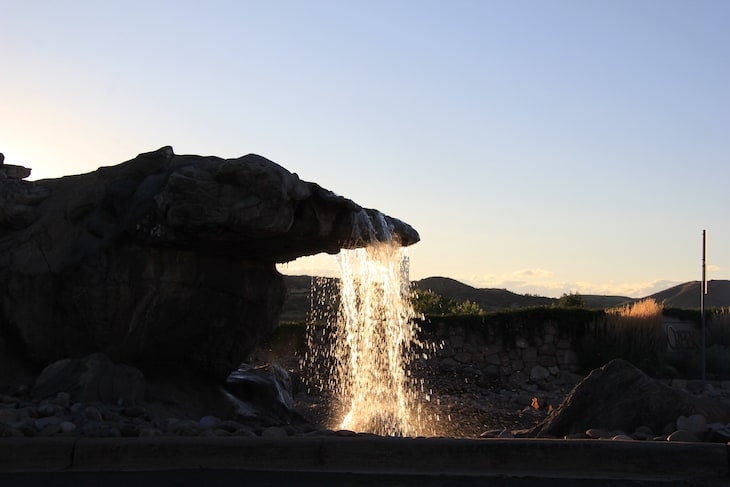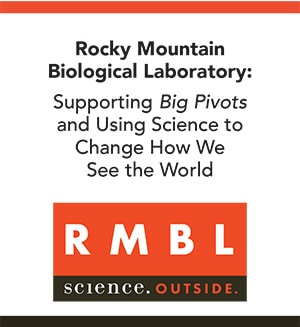Institute to be part of the Boulder-based Native American Rights Fund and likely will play a major role in the Colorado River Basin discussions
The Walton Family Foundation has committed $1.4 million during the next three years to create a Tribal Water Institute. The institute is to provide tribal nations the resources and training to advocate for their water rights and develop policy solutions.
It will be housed within the Boulder-based Native American Rights Fund, or NARF. The organization was established in 1970 and has provided legal assistance to Native American tribes, organizations, and individuals nationwide who might otherwise have gone without adequate representation.
This money for the Tribal Water Institute will double the Native American Rights Fund’s staffing devoted to water issues, allowing it to take on more casework. The goal is also to build a pipeline of new leaders and develop research and forward-thinking policy proposals.
“Addressing the West’s significant water challenges requires an all-hands on deck approach. Tribal Nations must be included in water decision-making,” said Moira Mcdonald, environment program director of the Walton Family Foundation.
“Tribal Nations often have the most senior water rights in the Colorado River Basin and throughout the West. But they are under-represented in federal and state policy discussions. That is unjust and unwise. We need to listen to their voices. More inclusive decision-making will lead to greater benefits for the environment and society as a whole.”
David Gover, managing attorney for the Native American Rights Fund, said the new institute will help fill a critical gap.
“It will provide legal support, train water attorneys, develop policy ideas, and educate state and federal decision-makers,” he said. “By increasing law and policy expertise within Tribal Nations, we can help Indian Country ensure water is available for generations to come.”
The Native American Rights Fund declares that its mission is to hold governments accountable. We fight to protect Native American rights, resources, and lifeways through litigation, legal advocacy, and legal expertise.
 Anne Castle, a senior fellow at the Getches-Wilkinson Center at the University of Colorado Law School, welcomed the announcement.
Anne Castle, a senior fellow at the Getches-Wilkinson Center at the University of Colorado Law School, welcomed the announcement.
“Tribal water rights and related interests are getting increased and much needed attention in the western U.S. and the Colorado River Basin in particular,” she observed. “It will be wonderful to have additional expert legal minds addressing these important issues with the practical and thoughtful experience NARF brings to bear.”
Castle was assistant secretary for water and science in the U.S. Department of Interior during the Obama administration.
The Walton Family Foundation, at its core, consists of three generations of descendants of the founders, Sam and Helen Walton, and their spouses. The foundation works in three areas, including protecting rivers and oceans. The foundation has become an important source of funding for many of the players in the Colorado River Basin during recent years. Many a conference has been underwritten, at least in part, by the Waltons. See more here.
As for how this new investment will be used, NARF identified five ways:
- A fellowship program to train young attorneys to represent and advocate for tribal water law solutions.
- Advocacy for tribal water rights. “To our knowledge, there is no national tribal organization or academic institution that focuses on tribal water rights or policy development,” says NARF. “The institute will help fill this gap and provide much-needed recommendations and other legal resources to guide tribal water policy.”
- A semi-annual report detailing water-related legal information and opportunities. Included will be such details as case summaries, pending legislation, successful settlements, and related commentary.
- Support for participation in the Ad Hoc Water Group; the group has been operated since 1981 by the Western States Water Council and NARF.
- Continuation of a biennial Indian water settlement symposium that has been held since 1991.
See more about the plans here.
Why support Big Pivots?
You need and value solid climate change reporting, and also the energy & water transitions in Colorado. Because you know that strong research underlies solid journalism, and research times take.
Plus, you want to help small media, and Big Pivots is a 501(c)3 non-profit.
Big grants would be great, but they’re rare for small media. To survive, Big Pivots needs your support. Think about how big pivots occur. They start at the grassroots. That’s why you should support Big Pivots. Because Big Pivots has influence in Colorado, and Colorado matters in the national conversation.
- Audubon getting into West’s transmission - April 30, 2024
- United Power on cusp of going solo - April 29, 2024
- Can renewables from SE Colorado go east? - April 29, 2024





